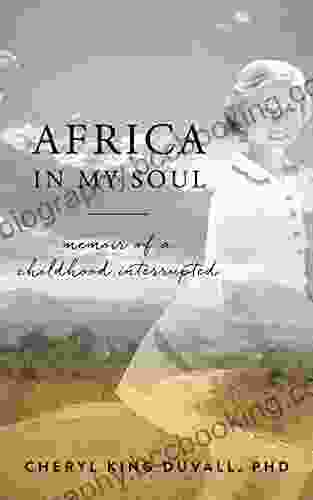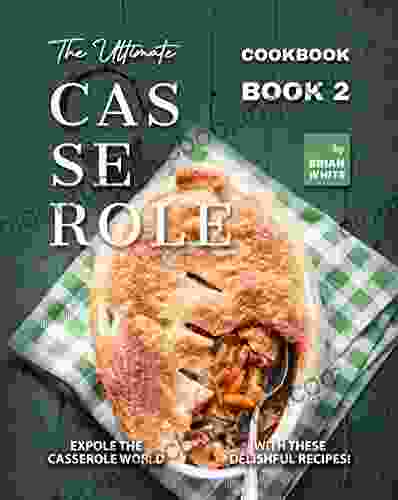Family, Faith, and Colonial Rule in Matabeleland, Zimbabwe: A Historical Exploration

4.7 out of 5
| Language | : | English |
| File size | : | 1219 KB |
| Text-to-Speech | : | Enabled |
| Screen Reader | : | Supported |
| Enhanced typesetting | : | Enabled |
| Word Wise | : | Enabled |
| Print length | : | 298 pages |
Matabeleland, a region in western Zimbabwe, holds a rich and captivating history that has been profoundly shaped by the interplay of family, faith, and colonial rule. This article delves into the complex and often tumultuous relationship between these three forces, shedding light on their impact on the region's social, cultural, and political fabric.
Family: The Foundation of Ndebele Society
For the Ndebele people, who have inhabited Matabeleland for centuries, family has always been the cornerstone of their society. Extended families, known as imini, formed the basic unit of social organization, providing support, security, and a sense of belonging to their members. Family ties were revered and played a crucial role in shaping individual identities and community values.
Faith: The Arrival of Christian Missions
In the late 19th century, Christian missionaries arrived in Matabeleland, bringing with them their own beliefs and practices. Missionaries established schools, churches, and hospitals, which had a significant impact on the region. While some Ndebele initially resisted these foreign influences, others embraced the teachings of Christianity, seeing it as a source of hope and salvation.
Colonial Rule: The British South Africa Company
In 1890, the British South Africa Company (BSAC) gained control of Matabeleland, marking the beginning of colonial rule in the region. The BSAC established a system of indirect rule, which involved working through local chiefs and traditional leaders. However, colonial policies often clashed with Ndebele customs and values, leading to tensions and conflict.
The First Chimurenga War
In 1893, the Ndebele people rose up against British rule in a war known as the First Chimurenga. The war was sparked by a combination of factors, including the loss of land, the imposition of taxes, and the erosion of traditional authority. Ndebele warriors fought valiantly, but they were ultimately defeated by the superior firepower of the British.
The Impact of Colonial Rule on Family and Faith
Colonial rule had a profound impact on family and faith in Matabeleland. The BSAC's policies disrupted traditional family structures by forcibly relocating people and imposing new laws that undermined the authority of family elders. Missionaries, who had previously been seen as allies, became associated with colonial power, leading to a decline in their influence among the Ndebele.
African Independent Churches
In response to the decline of mission Christianity, African independent churches emerged in Matabeleland. These churches, led by African pastors, combined traditional beliefs and practices with Christian teachings. African independent churches played a vital role in preserving Ndebele culture and identity during the colonial period.
The Second Chimurenga War
In the 1960s, a second Chimurenga war broke out in Matabeleland, this time against the white-minority government of Rhodesia. The war was fought along ethnic lines, with the Ndebele people playing a prominent role in the resistance movement. Christian leaders and African independent churches played a significant role in providing support and inspiration to the Ndebele during the war.
Post-Colonial Matabeleland
After Zimbabwe's independence in 1980, Matabeleland faced significant challenges related to land redistribution, economic development, and reconciliation. However, the region's rich history of family, faith, and resistance continues to shape its identity and aspirations.
The history of Matabeleland, Zimbabwe, is a testament to the complex and dynamic interplay of family, faith, and colonial rule. These three forces have shaped the region's social, cultural, and political landscape, leaving an enduring legacy that continues to resonate today. By understanding the intricate connections between these elements, we gain a deeper appreciation of the resilience and determination of the Ndebele people.

Image caption: A family in traditional Ndebele attire gathering for a ceremony, symbolizing the enduring importance of family in Matabeleland.
References
- Ranger, T. O. (1985). Peasant Consciousness and Guerrilla War in Southern Rhodesia. London: James Currey.
- Stigger, P. (1992). Colonial Situations: Essays on the Contextualization of Ethnographic Knowledge. Toronto: University of Toronto Press.
- Werbner, R. P. (1999). Ritual Passage, Sacred Journey: The Process and Rituals of Death in East and Central Africa. New York: Routledge.
4.7 out of 5
| Language | : | English |
| File size | : | 1219 KB |
| Text-to-Speech | : | Enabled |
| Screen Reader | : | Supported |
| Enhanced typesetting | : | Enabled |
| Word Wise | : | Enabled |
| Print length | : | 298 pages |
Do you want to contribute by writing guest posts on this blog?
Please contact us and send us a resume of previous articles that you have written.
 Book
Book Novel
Novel Page
Page Chapter
Chapter Text
Text Story
Story Genre
Genre Reader
Reader Library
Library Paperback
Paperback E-book
E-book Magazine
Magazine Newspaper
Newspaper Paragraph
Paragraph Sentence
Sentence Bookmark
Bookmark Shelf
Shelf Glossary
Glossary Bibliography
Bibliography Foreword
Foreword Preface
Preface Synopsis
Synopsis Annotation
Annotation Footnote
Footnote Manuscript
Manuscript Scroll
Scroll Codex
Codex Tome
Tome Bestseller
Bestseller Classics
Classics Library card
Library card Narrative
Narrative Biography
Biography Autobiography
Autobiography Memoir
Memoir Reference
Reference Encyclopedia
Encyclopedia Carrie Ryan
Carrie Ryan Brian Selznick
Brian Selznick Bryan Nelson
Bryan Nelson Brigid Moss
Brigid Moss Casey Michel
Casey Michel Caroline Corcoran
Caroline Corcoran Brian Grossenbacher
Brian Grossenbacher Brian Gordon
Brian Gordon Caroline James
Caroline James Brian G Quezada
Brian G Quezada Brian Fagan
Brian Fagan Bulut E Kok
Bulut E Kok Carol Jenkins
Carol Jenkins Bruce Gregor Hodge
Bruce Gregor Hodge Carley Garner
Carley Garner Carla Kaplan
Carla Kaplan Cadfolks
Cadfolks Camille Andros
Camille Andros Brian Leaf
Brian Leaf C Jordan
C Jordan
Light bulbAdvertise smarter! Our strategic ad space ensures maximum exposure. Reserve your spot today!

 Hamilton BellUnravel the Enigmatic Depths of "The Lost Village": A Captivating Novel of...
Hamilton BellUnravel the Enigmatic Depths of "The Lost Village": A Captivating Novel of...
 Aldous HuxleyUnveiling the Tapestry of Time: A Captivating Exploration of American History
Aldous HuxleyUnveiling the Tapestry of Time: A Captivating Exploration of American History Wayne CarterFollow ·9.4k
Wayne CarterFollow ·9.4k Norman ButlerFollow ·8.8k
Norman ButlerFollow ·8.8k Dwight BellFollow ·18.7k
Dwight BellFollow ·18.7k Damon HayesFollow ·15.2k
Damon HayesFollow ·15.2k Milton BellFollow ·2.4k
Milton BellFollow ·2.4k Asher BellFollow ·11.6k
Asher BellFollow ·11.6k Darren BlairFollow ·8.6k
Darren BlairFollow ·8.6k Chuck MitchellFollow ·15.7k
Chuck MitchellFollow ·15.7k

 Andy Hayes
Andy HayesUnveil the Rich Tapestry of Rural Life: Immerse Yourself...
Step into the enchanting pages of "Still...

 David Mitchell
David MitchellUnlocking the Depths of Cybersecurity: An In-Depth Look...
In the ever-evolving landscape of...

 Seth Hayes
Seth HayesUnlock the Secrets of Watercolor Landscapes: 37 Tools for...
Embark on a...

 Tyler Nelson
Tyler Nelson15 Insightful Answers to Questions on Uterine Fibroid
Uterine fibroids...

 Evan Hayes
Evan HayesAfrica In My Soul: A Literary Odyssey That Captivates the...
In a world where diverse cultures...
4.7 out of 5
| Language | : | English |
| File size | : | 1219 KB |
| Text-to-Speech | : | Enabled |
| Screen Reader | : | Supported |
| Enhanced typesetting | : | Enabled |
| Word Wise | : | Enabled |
| Print length | : | 298 pages |










